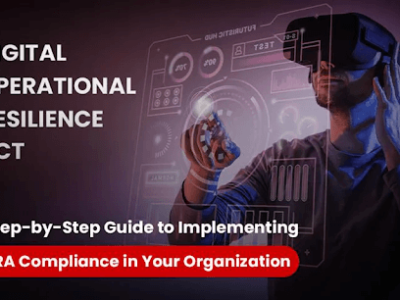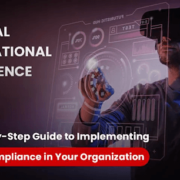Business intelligence (BI) is a mix of processes, applications and methodologies that transforms data into meaningful, useful and practical information to enable businesses to make informed decisions. BI tools examine and analyze data and present findings in dashboards, reports, graphs, charts, summaries and maps.
However, business intelligence (BI) is not just about generating reports. Neither, it tells business users what to do or what will happen if they take a certain course of action. BI is all about studying data and trends—examining it, understanding it and translating it into actionable insights.
Why Business Intelligence?
The simple answer is that businesses require BI to make better business decisions. Irrespective of their size, businesses can now leverage the power of business intelligence tools to make informed decisions. Earlier, only large businesses could afford business intelligence tools, however technological progress in Software as a Service (SaaS) has levelled the playing field.
Even though there is much hype currently around big data, advanced analytics, artificial intelligence (AI) and machine learning, the demand for BI is still growing as enterprises continue to increase their capabilities to meet growing demands. According to Technavio, a global technology research and advisory company, the global business intelligence market will post a CAGR of above 10 percent by 2020. This forecast was made in its report titled “Global Business Intelligence Market 2016-2020” published in January 2016.
Choosing the right business intelligence tool
Business enterprises can choose from a powerful list of BI tools today. In the 2017 Magic Quadrant report, Gartner listed QlikView, Tableau and Microsoft as leaders among the top 24 BI and analytics vendors.
However, your business should select a BI platform based on factors such as size, nature and complexity of operations, and the technology that you have already deployed in your organization such as SAP, IBM, Oracle etc.
Below are 8 critical factors to consider before you decide on your next Business Intelligence tool.
- Security – Your BI tool must be secure because it will handle business-critical data and information. At the same time, it should be accessible from anywhere.
- Data integrity – The tool must ensure that you maintain data integrity and compliance.
- Multiple-platform compatible – Your BI application must have the ability to analyze and report on data from multiple sources.
- Insightful – For a BI tool to add value, it must be able to distribute insights in a customized manner, rapidly and flexibly to key stakeholders.
- Ease of use – It’s important that the tool is easy to deploy, use and integrate.
- Ability to leverage – The solution must be designed to leverage your existing IT investments and resources.
- Scalability – Your BI application must definitely have the ability to scale as your business grows without being too costly.
- Dependability – Your BI solution partner should be dependable with a good track record of customer satisfaction and loyalty.
QlikView & Tableau
If you agree with Gartner (there’s no reason why you shouldn’t) you can go with QlikView or Tableau as your next BI tool without taking too much time to decide. Let’s find out why.
QlikView – The advantage of QlikView as a BI tool is that it is easy to use, quick to integrate, low cost and can be scaled without any hassles. One of the biggest pros of QlikView is flexibility with a high degree of scope for customization. Even intricate analytical needs of users are met with the use of robust tools to access and analyze in-depth data.
Tableau– Tableau has a powerful big data application that allows you to access, analyze and interpret data in a simplified way. The application provides a highly intuitive visual experience, an asset for small businesses. Regardless of the background (technical or analytical), any user can use Tableau. Data exploration, data set creation and dashboard creation is really smooth. Tableau is also available as a free cloud-version so that users can give it a try before buying it. So, if you are interested in affordable Tableau software you can consult any Tableau partner who has a satisfactory clientele base.
Take a step forward to drive informed and agile business decisions, learn more about how you can use these Business Intelligence tools in your business.



















